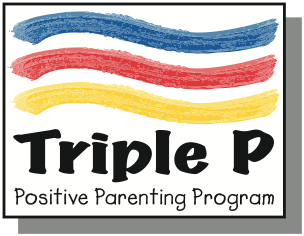

Triple P International Pty Ltd

Queensland, Australia
September 2017
Other education
Service with Minor Environmental Footprint
Australia,
Canada,
Chile,
China,
Germany,
Netherlands The,
New Zealand,
United Kingdom,
United States
Triple P International (TPI) is committed to offering evidence-based parenting support to as many people as possible, and holds the license to disseminate the Triple P - Positive Parenting Program, developed by the University of Queensland. TPI’s work aligns perfectly with the B Corp philosophy to “be a force for good”, as families are supported to create conditions that allow children and teenagers to reach their full potential. Those who work for Triple P International in Australia (or at Triple P’s offices in the U.S.A., U.K., Canada, New Zealand, Latin America, Germany and the Netherlands) are rightly proud of being part of an organization that exists in order to help empower parents and families. Triple P International has always been a pioneer in using a for-profit business model to function like a social enterprise, allowing it to disseminate and implement evidence-based family support services around the world. So far, TPI has trained more than 98,000 providers in more than 30 countries, published resources in 24 languages, and created online programs in more than 5 languages.
Overall B Impact Score
Governance 13.3
Governance evaluates a company's overall mission, engagement around its social/environmental impact, ethics, and transparency. This section also evaluates the ability of a company to protect their mission and formally consider stakeholders in decision making through their corporate structure (e.g. benefit corporation) or corporate governing documents.
What is this? A company with an Impact Business Model is intentionally designed to create a specific positive outcome for one of its stakeholders - such as workers, community, environment, or customers.
Workers 17.8
Workers evaluates a company’s contributions to its employees’ financial security, health & safety, wellness, career development, and engagement & satisfaction. In addition, this section recognizes business models designed to benefit workers, such as companies that are at least 40% owned by non-executive employees and those that have workforce development programs to support individuals with barriers to employment.
Community 11.2
Community evaluates a company’s engagement with and impact on the communities in which it operates, hires from, and sources from. Topics include diversity, equity & inclusion, economic impact, civic engagement, charitable giving, and supply chain management. In addition, this section recognizes business models that are designed to address specific community-oriented problems, such as poverty alleviation through fair trade sourcing or distribution via microenterprises, producer cooperative models, locally focused economic development, and formal charitable giving commitments.
Environment 10.1
Environment evaluates a company’s overall environmental management practices as well as its impact on the air, climate, water, land, and biodiversity. This includes the direct impact of a company’s operations and, when applicable its supply chain and distribution channels. This section also recognizes companies with environmentally innovative production processes and those that sell products or services that have a positive environmental impact. Some examples might include products and services that create renewable energy, reduce consumption or waste, conserve land or wildlife, provide less toxic alternatives to the market, or educate people about environmental problems.
Customers 27.6
Customers evaluates a company’s stewardship of its customers through the quality of its products and services, ethical marketing, data privacy and security, and feedback channels. In addition, this section recognizes products or services that are designed to address a particular social problem for or through its customers, such as health or educational products, arts & media products, serving underserved customers/clients, and services that improve the social impact of other businesses or organizations.
What is this? A company with an Impact Business Model is intentionally designed to create a specific positive outcome for one of its stakeholders - such as workers, community, environment, or customers.